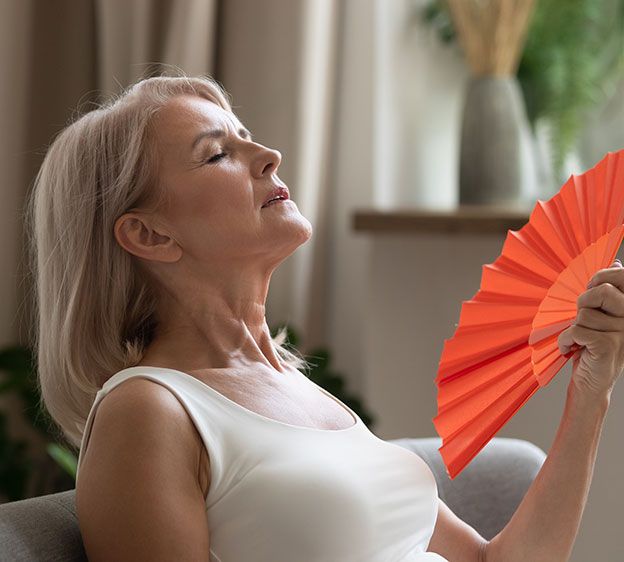Hot flashes are a common symptom experienced by many individuals, particularly women going through menopause. These sudden feelings of intense heat can be uncomfortable and disruptive, but there are natural ways to help manage them without resorting to medication. In this article, we will explore some effective strategies for managing hot flashes naturally.
Stay Cool
One of the most straightforward ways to manage hot flashes is to stay cool. Dress in layers so you can easily remove clothing when you feel a hot flash coming on. Choose breathable fabrics like cotton and linen that allow your skin to breathe. Keep your living or work spaces well-ventilated and use fans or air conditioning when necessary. Avoid hot showers or baths, and opt for lukewarm water instead.
Stay Hydrated
Dehydration can exacerbate hot flashes, so it’s essential to stay well-hydrated. Drink plenty of water throughout the day to help regulate your body temperature. Avoid drinks like alcohol and caffeine, which can trigger hot flashes in some individuals. Herbal teas like peppermint or sage can have a cooling effect on the body and may help reduce hot flashes.
Manage Stress
Stress can be a trigger for hot flashes, so it’s important to find ways to manage and reduce stress in your daily life. Practice relaxation techniques like deep breathing, meditation, or yoga to help calm your mind and body. Engage in regular exercise, which can help reduce stress levels and promote overall well-being. Prioritize self-care activities that bring you joy and relaxation.
Healthy Diet
Eating a balanced and nutritious diet can also help manage hot flashes. Foods rich in phytoestrogens like soy, flaxseed, and whole grains may help regulate hormone levels and reduce hot flashes. Avoid spicy foods, which can trigger hot flashes in some individuals. Incorporate plenty of fruits and vegetables into your diet, which are rich in essential nutrients and antioxidants.
Supplements
Some individuals find relief from hot flashes by taking certain supplements. Black cohosh, evening primrose oil, and vitamin E are commonly used to help manage menopausal symptoms like hot flashes. However, it’s essential to consult with a healthcare provider before starting any new supplement regimen, as they may interact with other medications or conditions.
Acupuncture
Acupuncture is a traditional Chinese medicine practice that involves inserting thin needles into specific points on the body. Some individuals find relief from hot flashes through acupuncture therapy. The practice is believed to help balance energy flow in the body and promote overall well-being. If you’re interested in trying acupuncture for hot flashes, be sure to consult with a licensed acupuncturist.
Conclusion
Hot flashes can be uncomfortable and disruptive, but there are natural ways to help manage them. By staying cool, hydrated, and stress-free, eating a healthy diet, considering supplements, and exploring alternative therapies like acupuncture, you can find relief from hot flashes without resorting to medication. It’s essential to listen to your body and find the strategies that work best for you. Remember to consult with a healthcare provider before making any significant changes to your routine.
